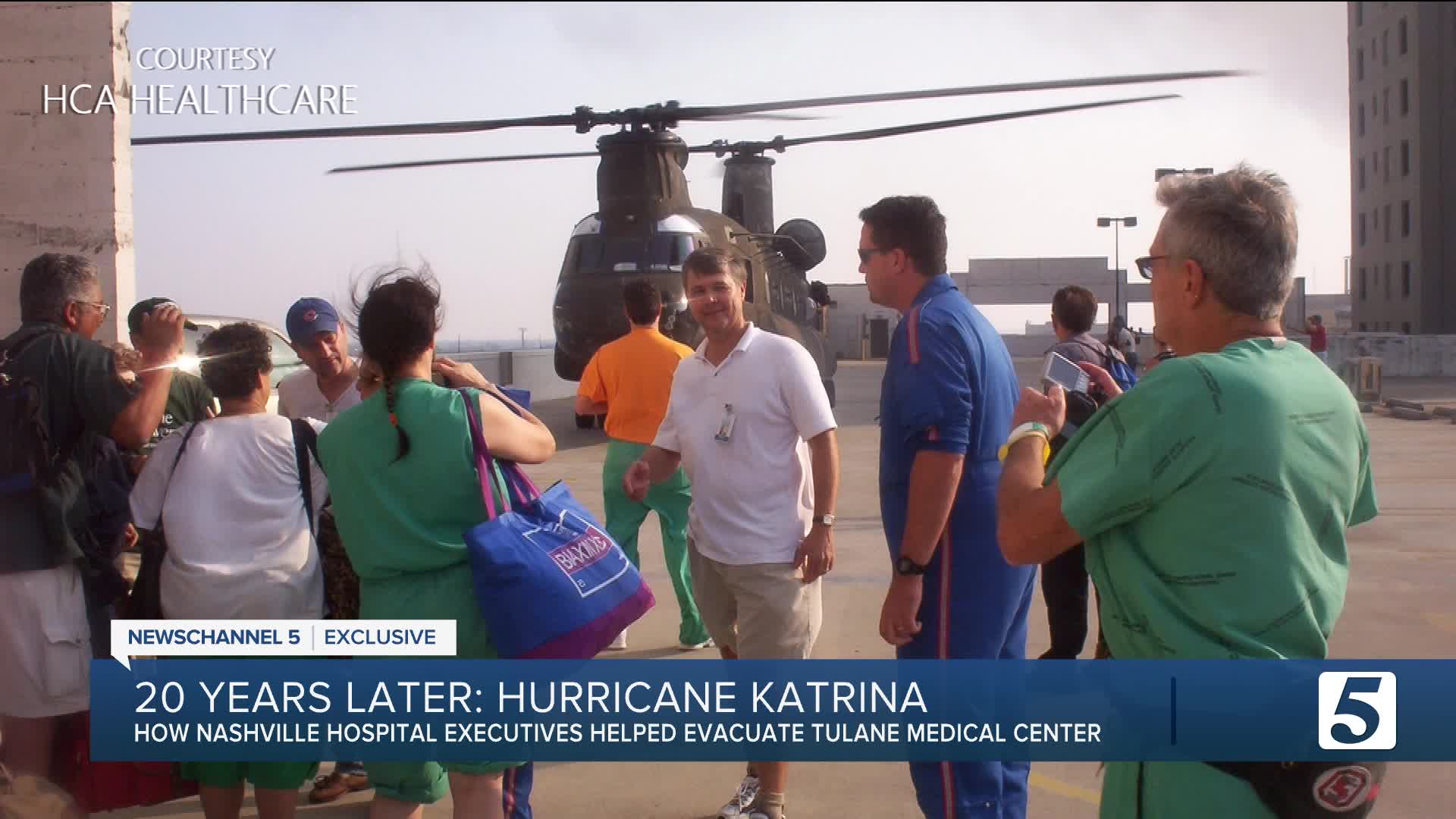NASHVILLE, Tenn. (WTVF) — Twenty years after Hurricane Katrina devastated New Orleans, the lessons learned from that catastrophic storm continue to shape how one of America's largest healthcare companies prepares for disasters.
Hospital Corporation of America (HCA)'s underground Emergency Operations Center in Nashville was constructed about eight years ago after the company realized it needed a permanent facility to oversee emergency operations.
Company executives said much of what they experienced in dispatching help for one of their hospitals in New Orleans formed their decisions on how the facility operates. "Whether it's a hurricane, a tornado, a mass shooting that we're responding to — we always have to be ready to go," said Mike Wargo, Vice President of HCA Healthcare Emergency Operations.
When the levees broke
Ed Jones, then HCA's Vice President of Supply Chain Operations, was managing the company's response when Katrina struck Tulane Medical Center in New Orleans.
"Of course, the hurricane hit, and we immediately thought we had dodged a bullet," Jones said.
Then the levees broke. "It went from, let's just hunker down and just kind of manage through it, to, we have to get everybody out," Jones said.
With roads impassable, local cell phones not working, and water rising rapidly, the evacuation became a race against time.
"We called on everybody," Jones said. "Literally, we started running through the Rolodex of helicopters - some we had already connected with, and then just started calling everybody that we knew."
Using a makeshift network of ham radios and landlines, Jones and his team coordinated which patients would be taken where and how they would get there.
"And either we could fly them directly out from a helicopter to a location if it wasn't too far, or we could take them to the Louis Armstrong Airport," Jones said.
Over three agonizing days, they evacuated more than 100 patients and 1,100 employees.
With time to spare, their helicopters even evacuated several patients from a competing hospital.
HCA sold Tulane Medical Center two years ago, but executives say the story of the evacuation will forever be a part of the fabric of HCA Healthcare.
Beyond patient care
The crisis extended beyond medical evacuations. Many HCA employees faced an uncertain future.
"Many of them knew they wouldn't have homes to go back to at that point," said Joanne Pulles, then HCA's Head of Human Resources.
HCA was already developing an employee assistance program, but Katrina accelerated the timeline dramatically.
"We were able to work with the IRS to get that approved in two weeks," Pulles said.
Twenty years later, the HCA Healthcare Hope Fund has since distributed more than $100 million in grants to employees and their families affected by tragedies.
Building for the future
The lessons learned from Katrina's evacuation led directly to the creation of HCA's current Emergency Operations Center.
"We learned a lot from Katrina, because really, the infrastructure was deeply impacted," Pulles said.
The facility ensures the healthcare giant can make informed decisions during future emergencies using comprehensive data rather than fragmented information.
"The capabilities we have developed over time have absolutely saved lives, no question," Jones said.
NewsChannel 5 has visited HCA's emergency facility before. You can read and watch that story here.
It's come in handy in the wake of other major hurricanes, mass shootings and even tragedies that have struck close to home — like the Nashville Christmas Day Bombing and the 2020 deadly tornadoes.
"The team around this table thinks about what's next, what happens if?" Jones added.
Did you get evacuated from the Tulane Medical Center in the wake of Hurricane Katrina? We'd love to hear your story. Shoot me an email at Chris.Davis@NewsChannel5.com

During a week when it seems that frustration is the prevailing sentiment felt across middle Tennessee amid ongoing power outages, Forrest Sanders brings us a story of love, faithfulness and a remarkable family... plus, a little humor on the side. Enjoy!
- Carrie Sharp





